All-out japanese beetle war
dstrout
19 years ago
Featured Answer
Sort by:Oldest
Comments (43)
alfie_md6
19 years agovgkg Z-7 Va
19 years agoRelated Discussions
MSU article on dealing with Japanese Beetles
Comments (7)Cardinals love eating the adult beetles. I hate Japanese beetles and love bird watching, so I always keep bird feeders full of sunflower seeds and a bird bath near my garden. I have almost no problem with japanese beetles, while my neighbor fights them non-stop in her rose garden. Her problem with them improved somewhat after I explained to her that the scent of her traps were luring them to her roses as well as the traps, so she finally moved them away from her roses. The birds eat the bird food rather than my food. When they see a nice high-protein bug snack to go with their seeds, they snap them up quickly. Ironically many people go berserk trying to kill moles on their property like Bill Murray in Caddyshack. Moles don't eat plants like voles do. Moles do love to eat Japanese Beetle grubs and baby voles. Harvestman, "How would the researchers explain this?" Since you set me up for this one like place-kicker, I could not resist. One very easy explanation if that frequent usage of high nitrogen fertilizers causes plants to develop fragile new growth that is higher in proteins and attracts more destructive bugs. http://www.biconet.com/reference/HGbeneficials.html "Soft, succulent new growth on plants attracts aphids and other critters, especially if you are still using high-nitrogen fertilizers and encouraging unhealthy fast growth." Greg...See MoreDo Japanese beetles like ALL roses?
Comments (63)Fascinating conversation. Here in the Ottawa Canada area I never noticed any Japanese Beetles until a few years ago, although I've had roses for about 20 years. I wish they "just lasted a few weeks", but even here in chilly zone 4B the irridescent green vampires hang around pretty much the whole summer and into fall, sucking the life out of the rose blooms. Sure roses are bothered by other things, but nothing like the Japanese Beetles, at least for me. I have a very early rose (Therese Bugnet) that gets a few blooms out before they take over, but then it's a free for all. I have noticed that the most fragrant (Hansa and Blanc Double de Coubert) are the most popular and they don't even open before the blooms are totally covered and devoured even with twice daily visits and "debugging". They are less aggressive on my Knockouts and my Carefree Wonder, the Knockouts seeming to be the very least bothered of all my roses, but they are also the farthest physically from the most scented roses. After they find the roses they are on to the raspberries (leaves) and they bury themselves into the hibisucs syriacus (rose of sharon) blooms. Ah, yest they certainly do fly and probably 1/3 of mine never "drop" into my soapy water container, regardless of how many partners they are mating with at the moment or how carefully I "sneak up" or how close I hold the container. I did see a suggestion of using geraniums to "draw the beetles away". They are supposed to be attracted to them, eat the geranium flowers and then fall over and pass out like drugged party goers so you could sweep them up. Sounded worth a try. This article didn't specify a colour and I had bright pink geraniums. Even when I put the pots of geraniums directly under my handsome "Hansa" they didn't land on the geraniums. Since then I've read that it's the white geraniums that they go for. So, if anyone wants to give that a try, I'd love to know if the white ones work for anyone. Or I've also heard of using catmint, or members of the onion or allium family planted close to the roses Going to give those a try since many are pretty and purple anyway, but I think you'd need something with persistant leaves to keep the scent going. I'm thinking perhaps I should get more of the early blooming roses like Therese Bugnet so that I might enjoy the blooms before the vampires descend, but I really want my roses to bloom all summer and for as long as possible. Just as a point of interest I do work in a garden centre and none of our roses had a Japanese Beetle. I had to fight off other rose thugs that I don't remember, but no Japanese Beetles. Perhaps it's the fact that the garden centre is on pavement and not surrounded by lawn where the lady vampires (JB's) lay their eggs and the adults winter over. Mary...See MoreGot rid of Japanese Beetles only to now have Spider Mites
Comments (7)OP: "...the Sevin I used set up a nice cozy care free environment for the mites." Here's a paragraph (from the link below) that would implicate Sevin (and some other insecticides): "Spider mites frequently become a problem after applying insecticides. Such outbreaks are commonly a result of the insecticide killing off the mites natural enemies but also occur when certain insecticides stimulate mite reproduction. For example, spider mites exposed to carbaryl (Sevin) in the laboratory have been shown to reproduce faster than untreated populations. Carbaryl, some organophosphates, and some pyrethroids apparently also favor spider mites by increasing the level of nitrogen in leaves. Insecticides applied during hot weather usually appear to have the greatest effect, causing dramatic spider mite outbreaks within a few days." Here is a link that might be useful: Spider Mites, UCDavis...See MoreWhere Did All These Japanese Beetles Come From?
Comments (29)Baldo says, it is imperative that you contact the Dept. of Agriculture for your County IMMEDIATELY. There is every probability that this is NOT Japanese Beetles -- BUT there is a chance that it IS. And if it is, the County must be made aware. Please don't delay. Contact them ASAP. Then, we will ALL know for sure. It is B A L D O V I L L E G A S. Use his name when you call Ag. They should know that name. (God knows, all of the Ag people in MY County know him.) He has now retired, but he was for years the State's top Entomologist, and he still consults for them....See Moredougt
19 years agoFranklin66
19 years agowayne_5 zone 6a Central Indiana
19 years agodstrout
19 years agoKimmsr
19 years agowayne_5 zone 6a Central Indiana
19 years agoalfie_md6
19 years agoFranklin66
19 years agoKimmsr
19 years agoalfie_md6
19 years agonandina
19 years agoKimmsr
19 years agoveilchen
19 years agodstrout
19 years agovgkg Z-7 Va
19 years agohenry_kuska
19 years agoalfie_md6
19 years agoorganic_mike
19 years agowayne_5 zone 6a Central Indiana
19 years agoanitamo
19 years agonandina
19 years agoanitamo
19 years agoshellbell3252
18 years agosoftmentor
18 years agorhizo_1 (North AL) zone 7
18 years agowayne_5 zone 6a Central Indiana
18 years agoAdamM321
18 years agoK
18 years agoAdamM321
18 years agoK
18 years agorhodie_chick
17 years agogw:organic-kiki
17 years agovgkg Z-7 Va
17 years agoflutterbug
17 years agobyron
17 years agosteve2416
17 years agowayne_5 zone 6a Central Indiana
17 years agovgkg Z-7 Va
17 years agovgkg Z-7 Va
17 years agoerleneflowers
5 years ago
Related Stories

MY HOUZZMy Houzz: Japanese Minimalism Blends With Classic New Orleans Style
African art and indoor plants complement the clean and modern aesthetic of two landscape architects
Full Story
DECORATING GUIDESStrange but True Parallels Between Early Western and Old Japanese Style
Part 1 of our 'wabi-sabi' series: in which Shaker and Arts and Crafts designs reveal simplicity, modesty and integrity
Full Story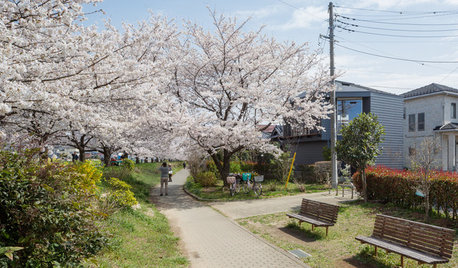
ARCHITECTURE4 Japanese Homes Proudly Speak to Their Surroundings
We’re celebrating the launch of Houzz Japan by exploring 4 key homes that speak to the Japanese lifestyle and landscape
Full Story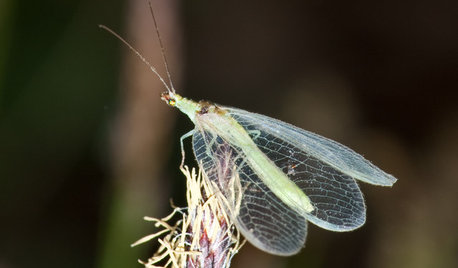
GARDENING GUIDESLook Out for Lacewings: Beneficial Insects Coming to a Garden Near You
Lacewings are delicate insects that produce alligator-like, hungry offspring that devour aphids and other garden pests
Full Story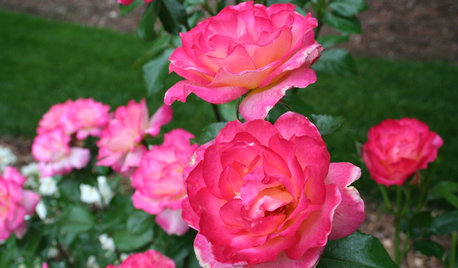
GARDENING GUIDESSoutheast Gardener: What to Do in June
Get your snippers out to protect your roses from beetles and harvest lavender from the landscape. It's a glorious month for Southern gardens
Full Story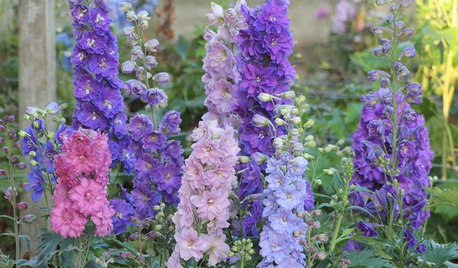
GARDENING GUIDES6 New Plant Varieties That Beat Out Their Parents
With better resistance and fewer demands, these garden beauties are worth a spot on your wish list
Full Story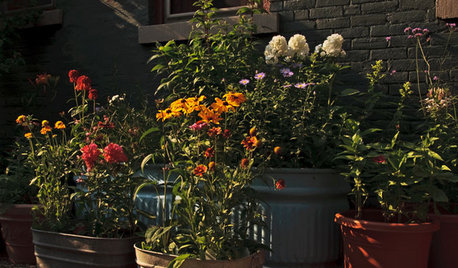
GARDENING GUIDESGreat Lakes Gardener: What to Do In July
Gather juicy berries and breathe in the lovely scent of lilies, but don't forget to stay on top of watering needs and shake off the beetles
Full Story
HOUZZ TOURSDiscover a Hobbit House Fit for Bilbo Baggins
Part art studio, part guesthouse and all charm, this imaginative Colorado cottage looks like it grew right out of the earth
Full Story
MOST POPULARWhy We Love Midcentury Modern Design
There's a method to all this 'Mad Men'-ness — just look to psychology, tough times and, believe it or not, Apple
Full Story
ROOTS OF STYLEArt Deco, Art Nouveau, Arts and Crafts: What’s the Difference?
If the zigzag and swirly designs of the past leave your head spinning, these descriptions will straighten you right out
Full Story


veilchen